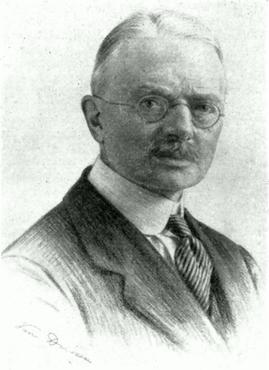Raymond Crawfurd
Raymond Crawfurd (1887–1959) was a prominent figure in the field of medicine, particularly known for his contributions to the study of hematology and the history of medicine. His work and research significantly advanced the understanding of blood diseases and their treatment during the early to mid-20th century.
Early Life and Education[edit | edit source]
Raymond Crawfurd was born in 1887, in a period marked by rapid advancements in medical science. He pursued his education in medicine at a time when the field was undergoing significant transformations, with new discoveries and technologies emerging. Crawfurd's early interest in medicine led him to attend one of the leading medical schools of the time, where he excelled in his studies, particularly in the areas of pathology and internal medicine.
Career[edit | edit source]
Throughout his career, Crawfurd made several notable contributions to the field of medicine. He was deeply involved in research related to blood disorders, which was a relatively new and unexplored area at the time. His work helped in the understanding and treatment of various anemias and hemophilia, diseases that were often fatal or severely debilitating before his research.
Crawfurd was also known for his interest in the history of medicine. He published several works that explored the evolution of medical practices and theories. His historical analyses provided insights into how medical understanding and treatments developed over centuries, highlighting the importance of historical context in contemporary medical practice.
Contributions and Legacy[edit | edit source]
One of Raymond Crawfurd's most significant contributions was his research into the nature and treatment of blood diseases. His work laid the groundwork for future research in hematology, paving the way for new treatments and better patient outcomes. Additionally, his publications on the history of medicine remain valuable resources for understanding the progression of medical thought and practice.
Crawfurd's legacy is marked by his dedication to advancing medical knowledge and his belief in the importance of historical understanding in medical practice. He was a respected figure among his peers and continues to be cited in both medical and historical literature.
Later Life and Death[edit | edit source]
Raymond Crawfurd continued to contribute to the medical field until his retirement. He passed away in 1959, leaving behind a legacy of significant contributions to medicine and the history of medical practice. His work continues to inspire researchers and practitioners in the field of hematology and beyond.
See Also[edit | edit source]
Search WikiMD
Ad.Tired of being Overweight? Try W8MD's physician weight loss program.
Semaglutide (Ozempic / Wegovy and Tirzepatide (Mounjaro / Zepbound) available.
Advertise on WikiMD
|
WikiMD's Wellness Encyclopedia |
| Let Food Be Thy Medicine Medicine Thy Food - Hippocrates |
Translate this page: - East Asian
中文,
日本,
한국어,
South Asian
हिन्दी,
தமிழ்,
తెలుగు,
Urdu,
ಕನ್ನಡ,
Southeast Asian
Indonesian,
Vietnamese,
Thai,
မြန်မာဘာသာ,
বাংলা
European
español,
Deutsch,
français,
Greek,
português do Brasil,
polski,
română,
русский,
Nederlands,
norsk,
svenska,
suomi,
Italian
Middle Eastern & African
عربى,
Turkish,
Persian,
Hebrew,
Afrikaans,
isiZulu,
Kiswahili,
Other
Bulgarian,
Hungarian,
Czech,
Swedish,
മലയാളം,
मराठी,
ਪੰਜਾਬੀ,
ગુજરાતી,
Portuguese,
Ukrainian
Medical Disclaimer: WikiMD is not a substitute for professional medical advice. The information on WikiMD is provided as an information resource only, may be incorrect, outdated or misleading, and is not to be used or relied on for any diagnostic or treatment purposes. Please consult your health care provider before making any healthcare decisions or for guidance about a specific medical condition. WikiMD expressly disclaims responsibility, and shall have no liability, for any damages, loss, injury, or liability whatsoever suffered as a result of your reliance on the information contained in this site. By visiting this site you agree to the foregoing terms and conditions, which may from time to time be changed or supplemented by WikiMD. If you do not agree to the foregoing terms and conditions, you should not enter or use this site. See full disclaimer.
Credits:Most images are courtesy of Wikimedia commons, and templates Wikipedia, licensed under CC BY SA or similar.
Contributors: Prab R. Tumpati, MD

